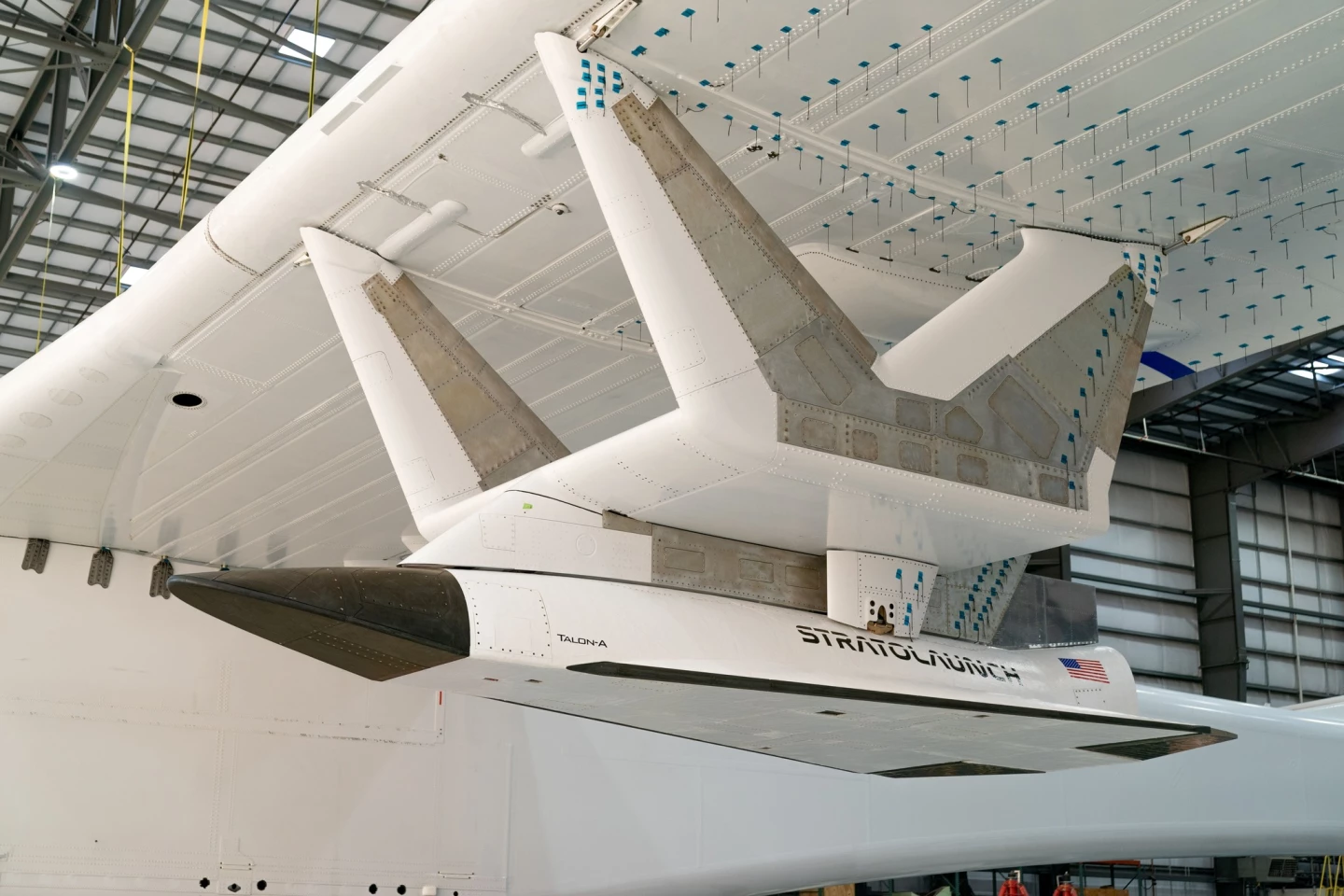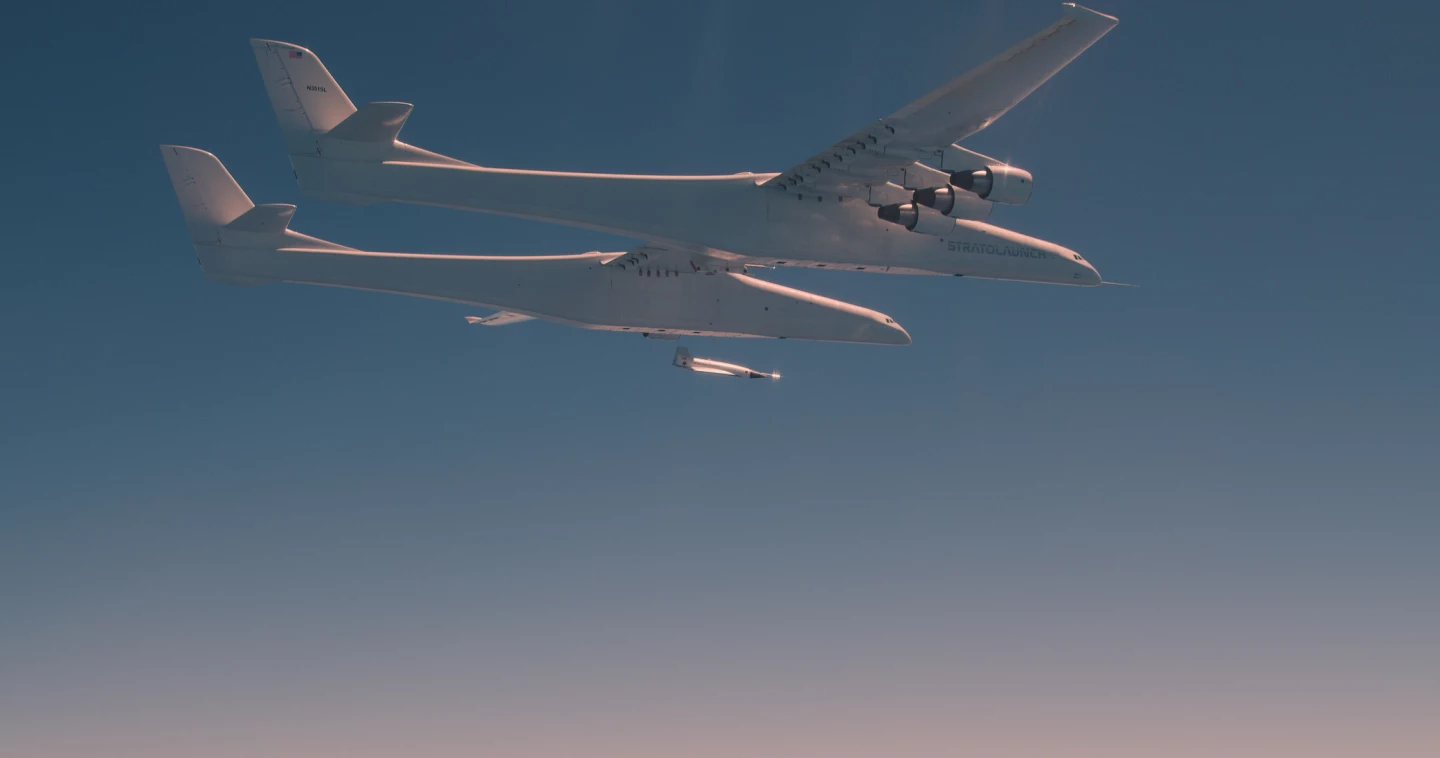California aerospace company Stratolaunch has taken a major step closer to the realization of its planned hypersonic flight launch system. Last weekend, the firm successfully released the TA-0 test vehicle from its Roc carrier aircraft.
Sporting two side-by-side fuselages, six Boeing 747 engines, 28 wheels, and wings that stretch 385 ft (117 m) from tip to tip, the Roc is the world's largest aircraft by wingspan.
Stratolaunch plans on using the plane to carry its smaller uncrewed Talon-A (TA-1) hypersonic aircraft to an altitude of 35,000 ft (10,000 m), at which point it will be released from the underside of the Roc to fly on its own. The rocket-powered TA-1 will proceed to reach speeds of over Mach 5 before autonomously landing on a runway.
It is hoped that there will ultimately be multiple TA-1s available for use in research on various aspects of hypersonic flight. In the meantime, Stratolaunch is working on perfecting the Roc's release system – that's where the Talon-0 (TA-0) comes in.

Announced last May, it's essentially an unpowered gliding stand-in for the Talon-A. The TA-0 gets winched into place on the bottom of a wing-like aluminum pylon which takes up 14 ft (4.3 m) on the underside of the Roc's center wingspan. It's intended to stay there until it's released at the appropriate altitude.
Last October the Roc made its first TA-0-carrying flight, but did not perform a separation test. This past Saturday (May 13th), however, it successfully did so during a 4-hour and 8-minute flight over the Vandenberg Space Force Base's Western Range off California's central coast.
Not only was the TA-0 cleanly released from the Roc, but the two aircraft remained in radio contact with one another – and with the base's communication system – after the separation was complete.
This functionality will be used to transmit backup telemetry data during the TA-1's hypersonic flights. Plans call for the first of those flights to take place late this summer (Northern Hemisphere).

"It was exhilarating to see TA-0 release safely away from Roc, and I commend our team and partners," said Stratolaunch CEO Dr. Zachary Krevor. "Our hardware and data collection systems performed as anticipated, and we now stand at the precipice of achieving hypersonic flight."
Source: Stratolaunch







